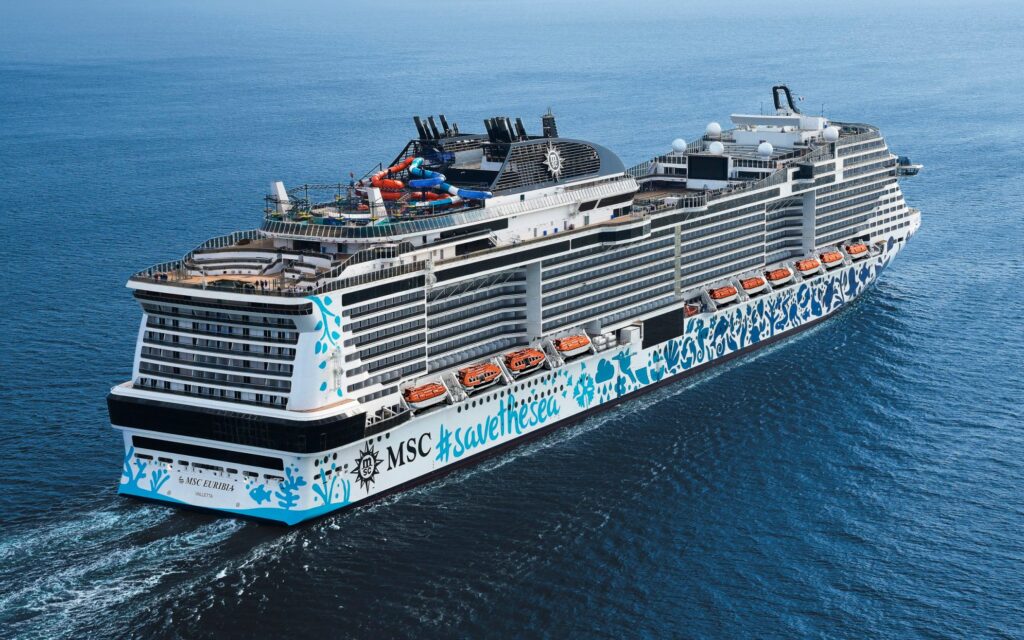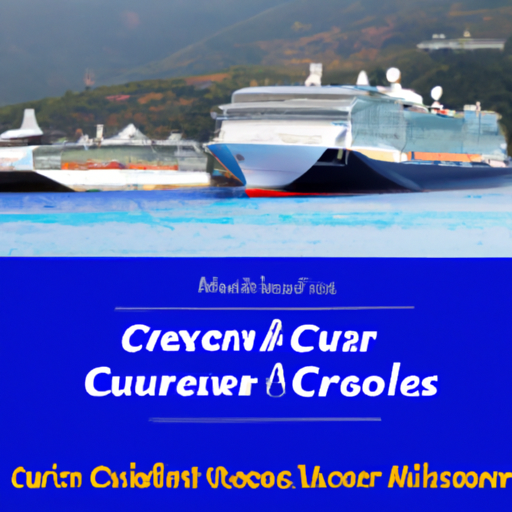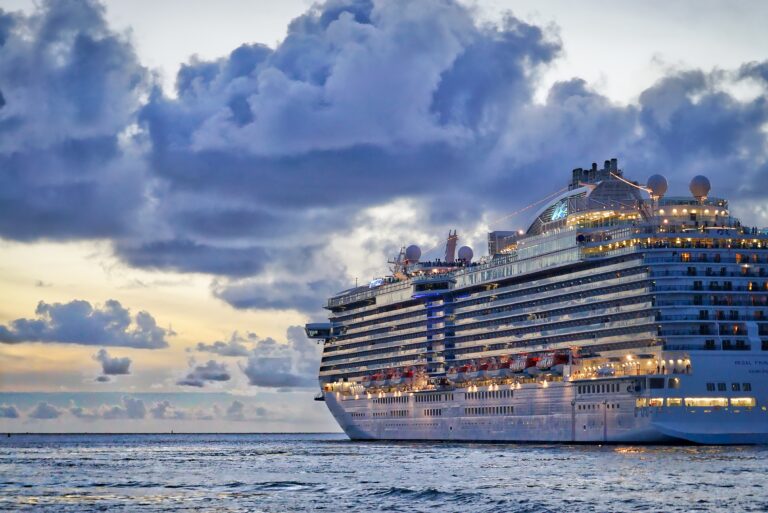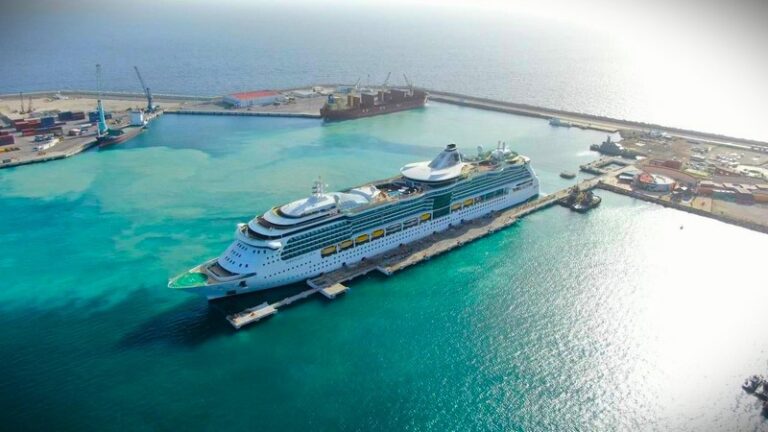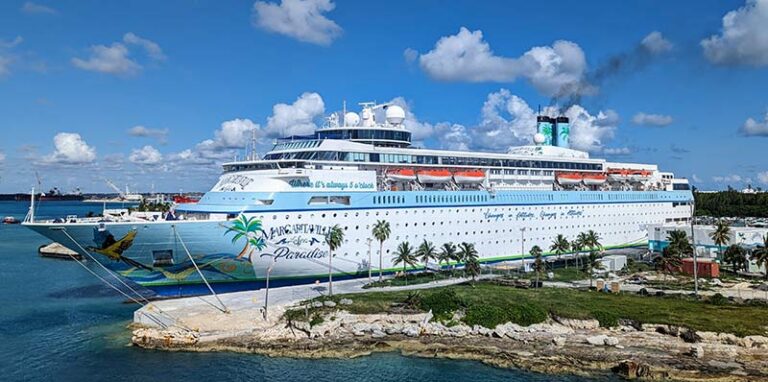MSC Cruises Details Results of World’s First Net Zero Cruise
In a groundbreaking achievement, MSC Cruises has revealed the results of the world’s first net-zero greenhouse gas emissions cruise. The four-day voyage, operated by the LNG-powered MSC Euribia, resulted in a saving of 43 tons of fuel and outperformed its digital twin in terms of energy flow and fuel utilization. The cruise incorporated various optimization and energy efficiency measures, including optimal speed profiles, routing, trim and engine configuration, and strict management of the energy consumption onboard. By using bio-LNG as fuel, the cruise was not only cost-effective but also aligned with the European Union’s Renewable Energy Directive. MSC Cruises will use the data collected during this groundbreaking voyage to further reduce emissions across its fleet. With this achievement, the company has proven that net-zero GHG emissions cruising is possible today, paving the way for the industry’s journey towards decarbonization.
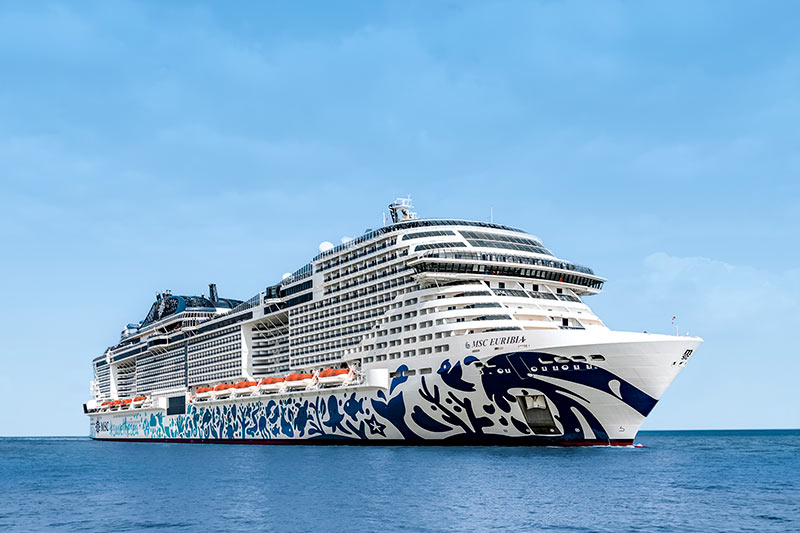
Background of the Net Zero Cruise
Origins of the net zero initiative
The concept of achieving net zero greenhouse gas (GHG) emissions has gained significant attention in recent years due to the urgency of addressing climate change. MSC Cruises, a leading cruise line company, committed itself to this initiative with the aim of reducing its environmental impact and leading the way in sustainable cruising.
Introduction of LNG-powered MSC Euribia
One of the key milestones in MSC Cruises’ net zero initiative was the introduction of the LNG-powered MSC Euribia. This state-of-the-art cruise ship is equipped with advanced technology and infrastructure that allows it to operate with much lower emissions compared to traditional cruise ships powered by heavy fuel oil. The utilization of LNG as a fuel is a significant step towards achieving net zero emissions.
Selection of the voyage route
For the world’s first net zero greenhouse gas emissions cruise, MSC Cruises carefully selected a voyage route that would showcase the capabilities of the MSC Euribia and maximize fuel efficiency. The route from Saint-Nazaire in France to Copenhagen in Denmark was chosen strategically to take advantage of favorable conditions and optimize the ship’s performance.
MSC Cruises Sustainability Efforts
MSC’s commitment to sustainability
MSC Cruises has long been committed to sustainability and environmental stewardship. The company recognizes the need to minimize its ecological footprint and actively implements measures to reduce emissions, conserve resources, and protect marine ecosystems. This commitment to sustainable practices is embedded in the company’s overall strategy and guides its decision-making processes.
Overview of MSC’s previous environmental initiatives
Prior to the net zero greenhouse gas emissions cruise, MSC Cruises had implemented various environmental initiatives aimed at reducing its environmental impact. These initiatives include the use of advanced waste management systems, energy-efficient technologies onboard its ships, and partnerships with environmental organizations to promote conservation efforts.
Role of vice president of sustainability and ESG at MSC Cruises
To further strengthen its sustainability efforts, MSC Cruises appointed a vice president of sustainability and Environmental, Social, and Governance (ESG). This role is responsible for overseeing the company’s sustainability strategy, developing and implementing sustainable practices, and collaborating with stakeholders to drive positive change within the cruise industry.
Components of Net Zero Greenhouse Gas Emissions
Explanation of net zero emissions concept
The concept of net zero greenhouse gas emissions refers to achieving a balance between the amount of GHG emissions produced and the amount of GHG emissions removed from the atmosphere. This balance is typically achieved through a combination of emission reductions and carbon offsetting measures. The aim is to minimize the overall impact of human activities on the climate system.
Role of bio-LNG as fuel
Bio-LNG, a renewable form of liquefied natural gas, plays a crucial role in MSC Cruises’ net zero initiative. It is a sustainable alternative to traditional fossil fuels, as it is produced from organic waste materials. By using bio-LNG as fuel for the MSC Euribia, the cruise line is able to significantly reduce its carbon footprint and contribute to the global efforts to mitigate climate change.
Factors contributing towards greenhouse gas emissions on a cruise ship
Cruise ships are complex systems that require energy for propulsion, onboard facilities, and passenger accommodations. The main contributors to greenhouse gas emissions on a cruise ship include the combustion of fuel for propulsion, electricity generation, and onboard activities such as heating, ventilation, and air conditioning (HVAC) systems. Addressing these factors is essential in achieving net zero emissions.
Operational Details of the Voyage
Time period and duration of voyage
The net zero greenhouse gas emissions voyage operated by MSC Euribia took place over a four-day period. This relatively short duration allowed for a focused evaluation of the ship’s performance and fuel efficiency, while still providing a meaningful demonstration of its capabilities.
Ports of departure and arrival
The voyage began in Saint-Nazaire, France, a strategically chosen departure port that offered favorable conditions for fuel optimization and efficiency. The journey concluded in Copenhagen, Denmark, a city known for its sustainability initiatives and commitment to environmental protection. Both ports played a significant role in supporting the net zero cruise and highlighting the importance of sustainable maritime practices.
Significance of Saint-Nazaire and Copenhagen in the context of the voyage
Saint-Nazaire and Copenhagen, as the departure and arrival ports respectively, served as crucial locations in the success of the net zero emissions voyage. These ports showcased their commitment to sustainability by providing the necessary infrastructure, resources, and support to enable the MSC Euribia to operate efficiently and achieve its emissions reduction goals.

Results of the Voyage
Fuel savings accrued
The net zero greenhouse gas emissions cruise yielded significant fuel savings, with a total of 43 tons of fuel saved during the four-day journey. This is a remarkable achievement that demonstrates the effectiveness of MSC Cruises’ optimization measures, energy efficiency initiatives, and the utilization of bio-LNG as a sustainable fuel source.
Performance comparison with the digital twin vessel
One of the key indicators of the success of the net zero emissions cruise was the comparison of the MSC Euribia’s performance with its digital twin vessel. The digital twin, an ashore virtual ship, replicated the ship’s energy flow and fuel utilization patterns. The MSC Euribia outperformed its digital twin by 11 percent, highlighting the efficiency and effectiveness of the onboard optimization measures and energy management strategies.
Discussion on the impact of optimization measures and energy efficiency
The impressive results of the net zero greenhouse gas emissions cruise can be attributed to a combination of optimization measures and energy efficiency initiatives onboard the MSC Euribia. These measures include the implementation of optimal speed profiles, routing, trim, and engine configuration, as well as the strict management of the hotel’s energy consumption. The cruise industry can learn from these practices and adopt similar strategies to reduce its environmental impact.
Energy Utilization and Management Onboard
Description of optimal speed profiles, routing, trim, and engine configuration
Optimal speed profiles, routing, trim, and engine configuration are key factors in achieving fuel efficiency and reducing greenhouse gas emissions on a cruise ship. By analyzing various variables such as weather conditions, sea currents, and vessel performance, MSC Cruises was able to determine the most efficient settings for the MSC Euribia during its net zero emissions voyage. These settings ensured minimal fuel consumption and maximum energy utilization.
Discussion of the strict management of hotel’s energy consumption
The management of the hotel’s energy consumption onboard the MSC Euribia was a critical aspect of achieving net zero greenhouse gas emissions. By implementing strict energy management practices, such as efficient lighting systems, optimized HVAC controls, and guest education programs, MSC Cruises was able to minimize energy waste and reduce overall energy consumption during the voyage.
Usage of heat recovery from ship’s engines
A notable feature of the MSC Euribia’s energy utilization strategy was the use of heat recovery from the ship’s engines. All the required heat for galleys, heating, ventilation systems, and hot water production onboard was recovered from the ship’s engines. This innovative approach eliminated the need for separate boilers, reducing energy consumption and increasing overall efficiency.
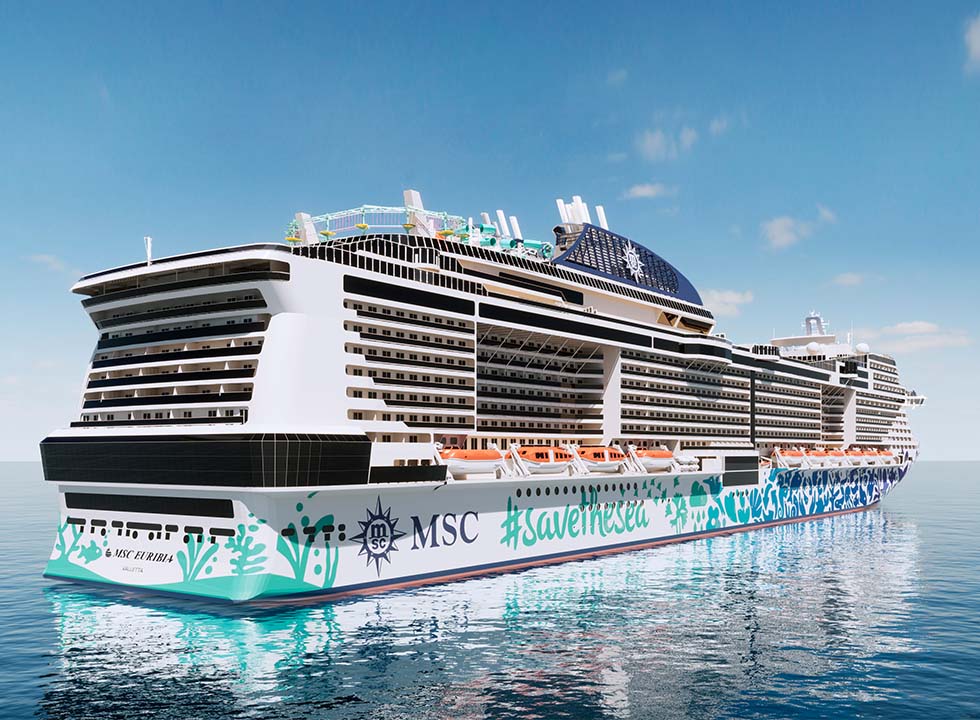
European Union’s Renewable Energy Directive (RED II)
Relation of RED II with bio-LNG
The European Union’s Renewable Energy Directive, known as RED II, plays a significant role in validating the use of bio-LNG as a sustainable fuel source. Bio-LNG is recognized as the most cost-effective and environmentally friendly fuel method under RED II, aligning with MSC Cruises’ commitment to sustainable cruising and its net zero greenhouse gas emissions initiative.
How MSC adheres to EU’s RED II
MSC Cruises ensures compliance with the European Union’s Renewable Energy Directive by using bio-LNG as fuel for the MSC Euribia. Each batch of bio-LNG produced is certified by the International Sustainability and Carbon Certification, guaranteeing its sustainability and adherence to the strict requirements set forth by RED II.
Certification of bio-LNG batches
To ensure transparency and accountability in its usage of bio-LNG, MSC Cruises obtains certification for each batch of bio-LNG produced. This certification process involves rigorous assessment and verification of the bio-LNG’s sustainability and carbon neutrality, providing assurance to stakeholders and customers that the fuel used onboard the MSC Euribia meets the highest environmental standards.
Future Implications and Objectives
MSC’s sustainability targets ahead of 2050
MSC Cruises has set ambitious sustainability targets to be achieved by 2050. These targets include achieving zero-emission operations, developing sustainable fuel production technology, and integrating advanced energy-efficient solutions across its entire fleet. The success of the net zero greenhouse gas emissions cruise paves the way for the realization of these targets and sets a precedent for sustainable cruising in the future.
Potential regulatory and financial incentives needed
To accelerate the transition towards sustainable cruising and achieve MSC Cruises’ sustainability targets, regulatory and financial incentives are crucial. The cruise industry requires support from governments and international organizations to implement sustainable practices, invest in green technologies, and access renewable fuel sources. Financial incentives can also encourage innovation and attract investments in sustainable solutions.
MSC’s plans for fuel production and technology integration
MSC Cruises recognizes the importance of developing sustainable fuel production technology to support its net zero initiative. The company aims to invest in research and development efforts to unlock the full potential of renewable energy sources and bio-LNG production. Additionally, MSC Cruises plans to integrate advanced technologies and energy-efficient solutions across its fleet to further reduce emissions and improve overall sustainability.
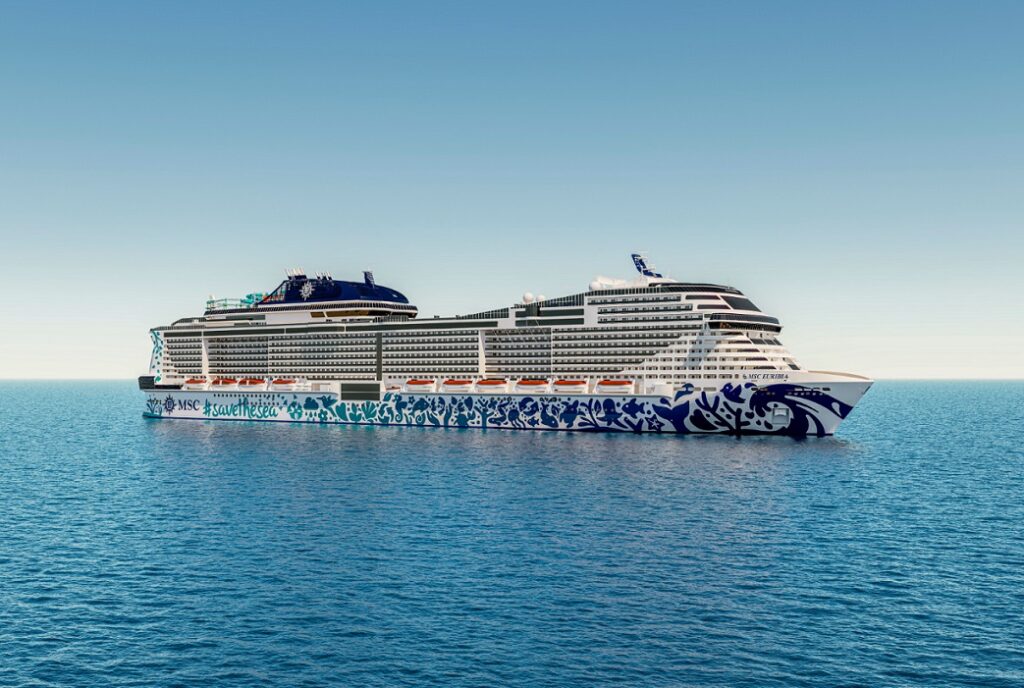
Data Collection and Its Uses
Information gathered during MSC Euribia’s net zero emissions sailing
The net zero greenhouse gas emissions sailing of the MSC Euribia provided an invaluable opportunity to gather comprehensive data on the ship’s performance, fuel efficiency, and energy utilization. Data was collected in real-time throughout the voyage, allowing for thorough analysis and evaluation of optimization measures and energy management strategies.
Importance of data in decision making
Data collection is integral to informed decision-making and plays a vital role in driving sustainability initiatives. By leveraging the data collected during the net zero emissions sailing, MSC Cruises can identify areas for further improvement, optimize energy utilization, and make data-driven decisions to reduce its environmental impact. This data-driven approach ensures continuous improvement and long-term sustainability.
How the data will be used to further reduce emissions
The data collected during the MSC Euribia’s net zero emissions sailing will be utilized to develop and implement targeted strategies for further emissions reduction across the entire MSC Cruises fleet. By analyzing the data, identifying areas of opportunity, and implementing best practices, the cruise line can continue to improve its environmental performance and achieve its sustainability goals.
Impact on the Cruise Industry
What MSC Cruises’ achievements mean for the rest of the cruise industry
MSC Cruises’ successful net zero greenhouse gas emissions cruise sets a new benchmark and raises the bar for the entire cruise industry. It demonstrates that sustainable cruising is not only possible but also financially viable and environmentally responsible. MSC Cruises’ achievements serve as an inspiration and catalyst for other cruise lines to adopt similar initiatives and work towards a more sustainable future.
Possible uptake of similar initiatives by other cruise lines
The success of MSC Cruises’ net zero greenhouse gas emissions cruise is likely to inspire other cruise lines to follow suit and implement similar initiatives. As the cruise industry faces increasing scrutiny over its environmental impact, more companies are recognizing the importance of sustainability and will likely invest in technologies, fuels, and operational measures to reduce greenhouse gas emissions and transition towards net zero operations.
How this sets a new benchmark for future cruises
The net zero greenhouse gas emissions cruise operated by MSC Euribia sets a new benchmark for future cruises. It showcases the possibilities and potential of sustainable cruising, proving that significant emissions reduction and operational efficiency can be achieved. This groundbreaking accomplishment encourages the cruise industry to prioritize sustainability, invest in green technologies, and contribute to the global climate change mitigation efforts.
